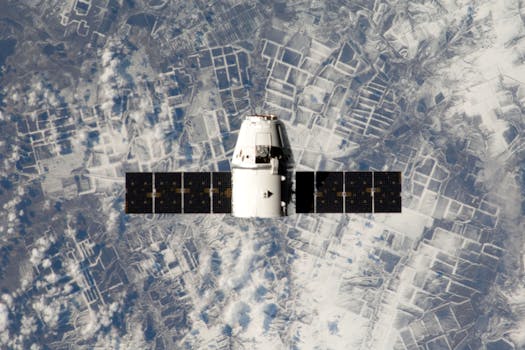The Future of Satellites: Revolutionizing Global Connectivity
The future of satellites is poised to revolutionize global connectivity, enabling faster and more reliable communication, navigation, and remote sensing. With advancements in space technology, satellites are becoming increasingly important for various industries and aspects of our lives.

The Future of Satellites is an exciting and rapidly evolving field, with significant advancements in space technology transforming the way we communicate, navigate, and understand our planet. As we continue to push the boundaries of innovation, satellites are becoming increasingly important for various industries and aspects of our lives. From enabling faster and more reliable communication to providing critical services such as navigation, weather forecasting, and remote sensing, the impact of satellites is undeniable.
One of the key drivers of the future of satellites is the growing demand for global connectivity. As the world becomes increasingly interconnected, the need for fast, reliable, and secure communication networks is on the rise. Satellites play a vital role in bridging the digital divide, providing connectivity to remote and underserved communities, and enabling the widespread adoption of emerging technologies such as the Internet of Things (IoT) and 5G networks. With the launch of new satellite constellations, such as OneWeb and Starlink, we can expect to see a significant increase in global connectivity, with faster speeds, lower latency, and greater accessibility.
Another area where satellites are making a significant impact is in the field of remote sensing. With the ability to collect and analyze vast amounts of data from space, satellites are providing valuable insights into our planet’s climate, weather patterns, and natural resources. This information is essential for predicting and mitigating the effects of natural disasters, monitoring environmental changes, and optimizing agricultural production. Additionally, satellites are being used to track and monitor maritime traffic, detect and respond to natural disasters, and provide critical support for search and rescue operations.
The future of satellites is also closely tied to the development of emerging technologies such as artificial intelligence (AI) and machine learning (ML). As the amount of data generated by satellites continues to grow, the need for advanced analytics and processing capabilities is becoming increasingly important. By leveraging AI and ML, we can unlock new insights and applications from satellite data, such as predictive maintenance, anomaly detection, and automated decision-making. This will enable us to extract even more value from satellite data, driving innovation and growth across various industries.
However, as the number of satellites in orbit continues to grow, there are also concerns about the environmental impact of space debris. With thousands of satellites and other objects in orbit, the risk of collisions and the accumulation of debris is becoming a significant challenge. To address this issue, there is a growing need for sustainable and responsible practices in space, such as designing satellites for reuse and recycling, implementing collision avoidance systems, and developing technologies for active debris removal.
In conclusion, the future of satellites is poised to revolutionize global connectivity, enabling faster and more reliable communication, navigation, and remote sensing. With advancements in space technology, satellites are becoming increasingly important for various industries and aspects of our lives. As we continue to push the boundaries of innovation, it is essential that we prioritize sustainable and responsible practices in space, ensuring that the benefits of satellites are available for generations to come.
The future of satellites holds much promise, and it will be exciting to see how this technology continues to evolve and shape our world.
For more information, please visit the following websites: NASA, European Space Agency, and Satellite Today.







